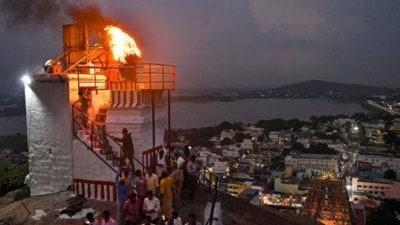From Bhagat Singh to Dallewal: 6 famous hunger strikes in Punjab
Many have sat on hunger strikes in Punjab. But they have rarely succeeded, at least when it comes to their stated aims. Here are 6 famous instances
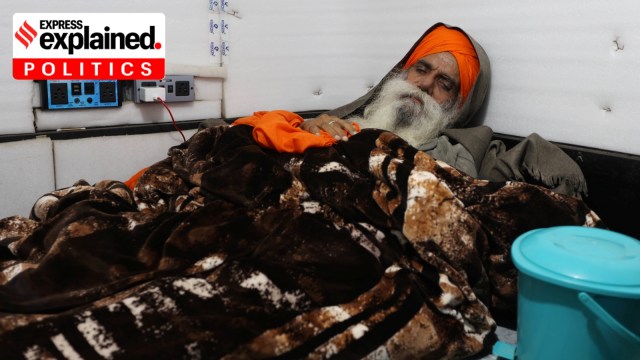 Fasting farmer leader Jagjit Singh Dallewal in his makeshift accomodaton at the Khanauri border point between Punjab and Haryana. (Express Photo by Gurmeet Singh)
Fasting farmer leader Jagjit Singh Dallewal in his makeshift accomodaton at the Khanauri border point between Punjab and Haryana. (Express Photo by Gurmeet Singh)Farmer leader Jagjit Singh Dallewal’s fast-unto-death entered day 24 on Thursday (December 19). Dallewal, 70, had fainted for roughly 10 minutes on Thursday before being revived. The Punjab government is keeping a close eye on the leader’s health, even as it tries to talk to agitating farmers.
Dallewal is not the first Punjab leader to have gone on a hunger strike. But such fasts have seldom yielded much in the past. Here are 6 famous instances.
- 01
Bhagat Singh, 1929
 Bhagat Singh, in 1929. (Wikimedia Commons)
Bhagat Singh, in 1929. (Wikimedia Commons)Perhaps the most famous hunger strike in the history of Punjab — and India — is the one which revolutionary freedom fighter Bhagat Singh undertook at Lahore’s Mianwali Jail in 1929 (before Partition, Lahore was the capital of the Punjab province). Bhagat Singh’s 116-day long strike was a protest against the treatment meted to political prisoners.
He began his fast, along with his fellow inmates, on June 11, making demands for better toilets, clothing, availability of books, and quality food. One of Bhagat Singh’s fellow inmates, Jatindra Nath Das, died on September 13 on day 63 of the hunger strike. Bhagat Singh called off the hunger strike on October 5 on the request of his father.
Although the strike did not change much when it came to prison conditions, it added to the mythology of Bhagat Singh in Punjab and beyond.
- 02
Master Tara Singh, 1961
 Master Tara Singh. (Wikimedia Commons)
Master Tara Singh. (Wikimedia Commons)Shiromani Akali Dal leader Master Tara Singh went on a hunger strike in 1961, demanding the creation of a Punjabi-speaking state. He began his fast at the Golden Temple in Amritsar, and proclaimed he will fast unto death unless his demands are met.
Then Prime Minister Pandit Jawaharlal Lal Nehru told him, however, that India is a secular country, and the creation of a state based on religious distinction would be inappropriate. But, in a personal letter, Nehru assured to further look into the matter. This prompted Tara Singh to end his fast after 48 days, by accepting a glass of juice from fellow SAD leader Sant Fateh Singh. Many in the SAD were unhappy with this decision and turned against him.
Ultimately Punjab was bifurcated on the basis of language, to create the states of Punjab and Haryana in 1966. Tara Singh, however, did not live for much longer, passing a year later on November 22, 1967.
- 03
Sant Fateh Singh, 1966
 Sant Fateh Singh breaking his fast with orange juice. (Express Archive Photo)
Sant Fateh Singh breaking his fast with orange juice. (Express Archive Photo)SAD leader Sant Fateh Singh began fasting unto death on December 17, 1966. His demands? The inclusion of Chandigarh, and other Punjabi-speaking areas in the newly-formed state of Punjab. He even threatened self-immolation after 10 days if his demands were not met.
Then Prime Minister Indira Gandhi intervened on December 27, and promised Singh that his demands would be considered. The 55-year old leader ended his fast after the PM’s assurance. But nothing came of it afterwards, Chandigarh remains the joint capital of Haryana and Punjab, much to the disagreement of many Punjabis.
- 04
Darshan Singh Pheruman, 1969
 Darshan Singh Pheruman. (Wikimedia Commons)
Darshan Singh Pheruman. (Wikimedia Commons)Darshan Singh Pheruman, a former MP, Sikh activist, and freedom fighter, accused Fateh Singh of lowering the dignity of Sikhism by breaking his ardas (prayer) of fasting unto death even though his demands were never met. At the age of 84, Pheruman said he will fast unto death to ensure that all Punjabi-speaking areas are transferred to Punjab from Haryana.
He was arrested on August 12, 1969 and began his fast inside the Amritsar jail on August 15. He was hospitalised on August 27, but refused all treatment and any feeding. He passed away on October 27, on the 74th day of his hunger strike.
Following his death, his supporters floated the Shaheed Pheruman Akali Dal but this party has thus far failed to establish any significant foothold in Punjab politics.
- 05
Surat Singh Khalsa, 2015-2023
 Surat Singh Khalsa after being discharged from the hospital in Ludhiana last year. (Express Photo by Gurmeet Singh)
Surat Singh Khalsa after being discharged from the hospital in Ludhiana last year. (Express Photo by Gurmeet Singh)Surat Singh Khalsa’s fast might be the longest in Punjab history. He began fasting at the age of 82 on January 16, 2015 and only broke his fast on January 14, 2023. During this time, he was fed via a nasal tube (like Irom Sharmila of Manipur).
Khalsa’s fast was aimed to secure the release of political prisoners who were languishing in Punjab jails despite completing their terms. He began his fast at his home in Ludhiana district’s Hassanpur village, but spent most of his time during the fast in Ludhiana’s Dayanand Medical College and Hospital.
He ended his fast just ahead of his 90th birthday, reportedly due to an appeal made by Sikh prisoner Jagtar Singh Hawara. The Insaaf Morcha, an amalgamation of various Sikh organisations set up in Mohali on January 7, 2023, continues to fight for the release of Sikh political prisoners.
- 06
Jagjit Singh Dallewal, 2024
Dallewal, a 70-year-old prostate cancer patient, began his fast unto death on November 26.
He is the coordinator of the Samyukta Kisan Morcha (SKM), a forum comprising over 100 farmers’ unions. This is Dallewal’s sixth hunger strike so far, and the longest one till date. His supporters say that he is only consuming water during his fast. Ahead of his fast, Dallewal willed his 17 acres of farmland to his son, daughter-in-law, and grandson.
His demands include making MSP a legal guarantee, and implementing the Swaminathan Commission’s report to determine rates of crops.
- 01
- 02
- 03
- 04
- 05


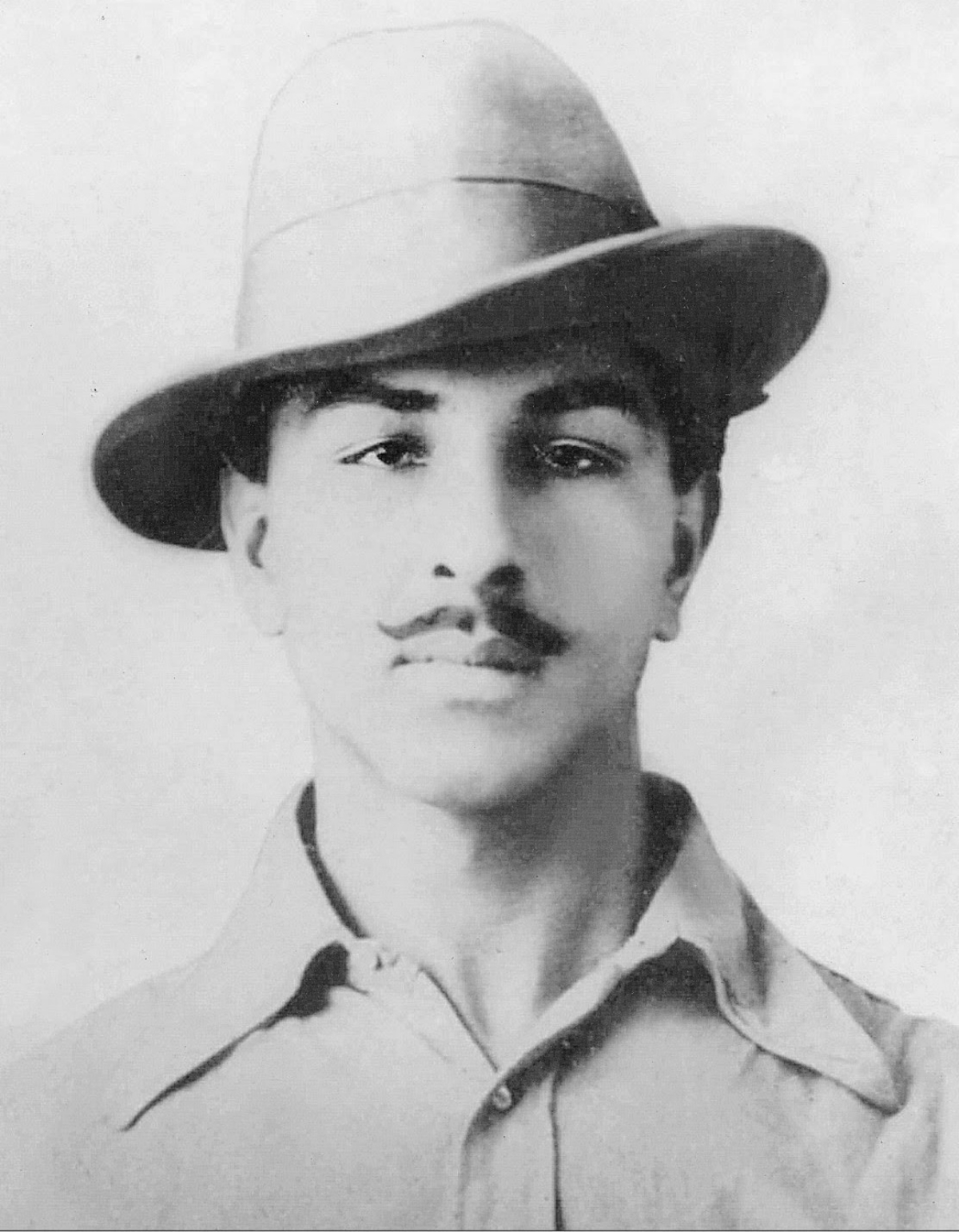 Bhagat Singh, in 1929. (Wikimedia Commons)
Bhagat Singh, in 1929. (Wikimedia Commons)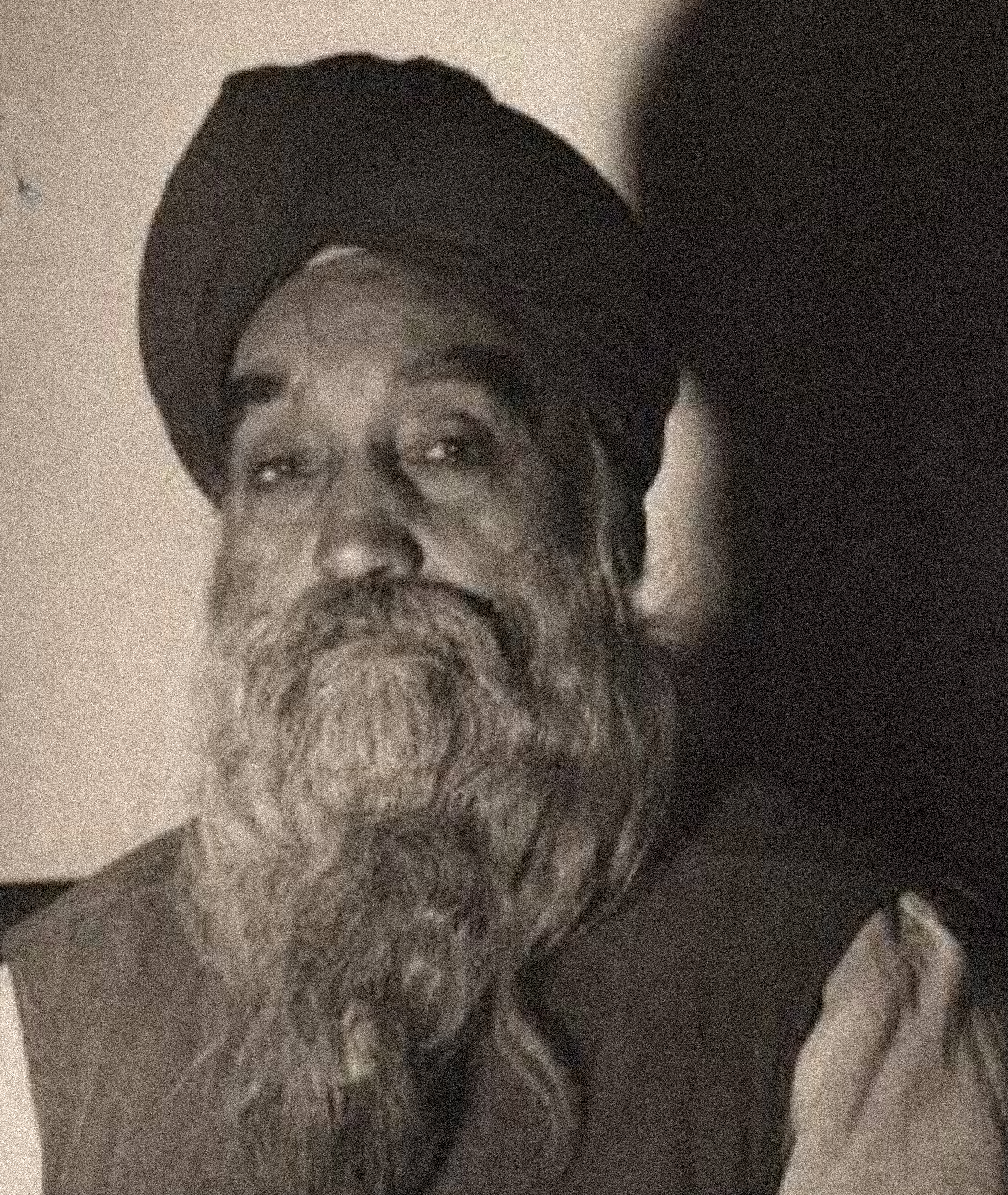 Master Tara Singh. (Wikimedia Commons)
Master Tara Singh. (Wikimedia Commons)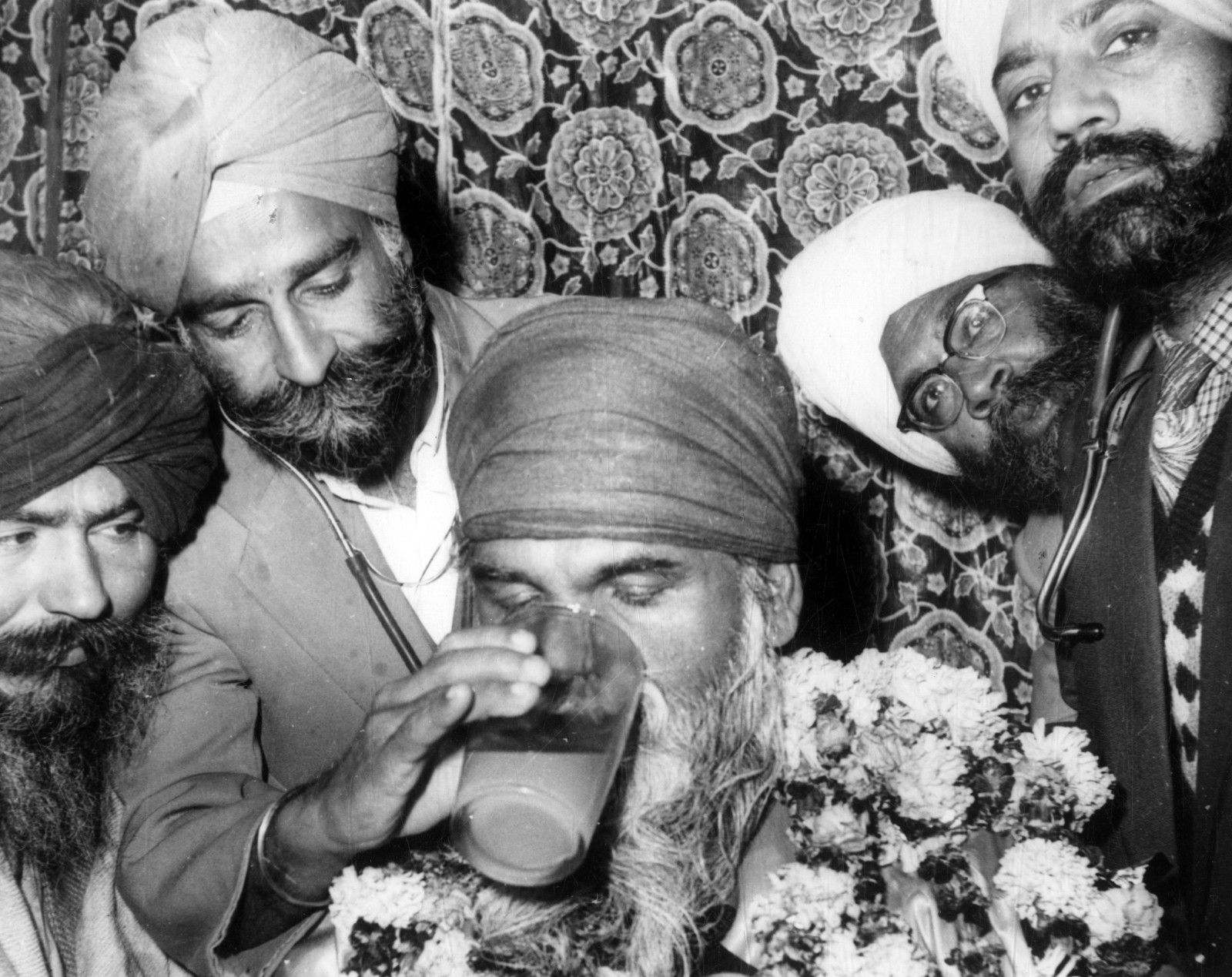 Sant Fateh Singh breaking his fast with orange juice. (Express Archive Photo)
Sant Fateh Singh breaking his fast with orange juice. (Express Archive Photo) Darshan Singh Pheruman. (Wikimedia Commons)
Darshan Singh Pheruman. (Wikimedia Commons)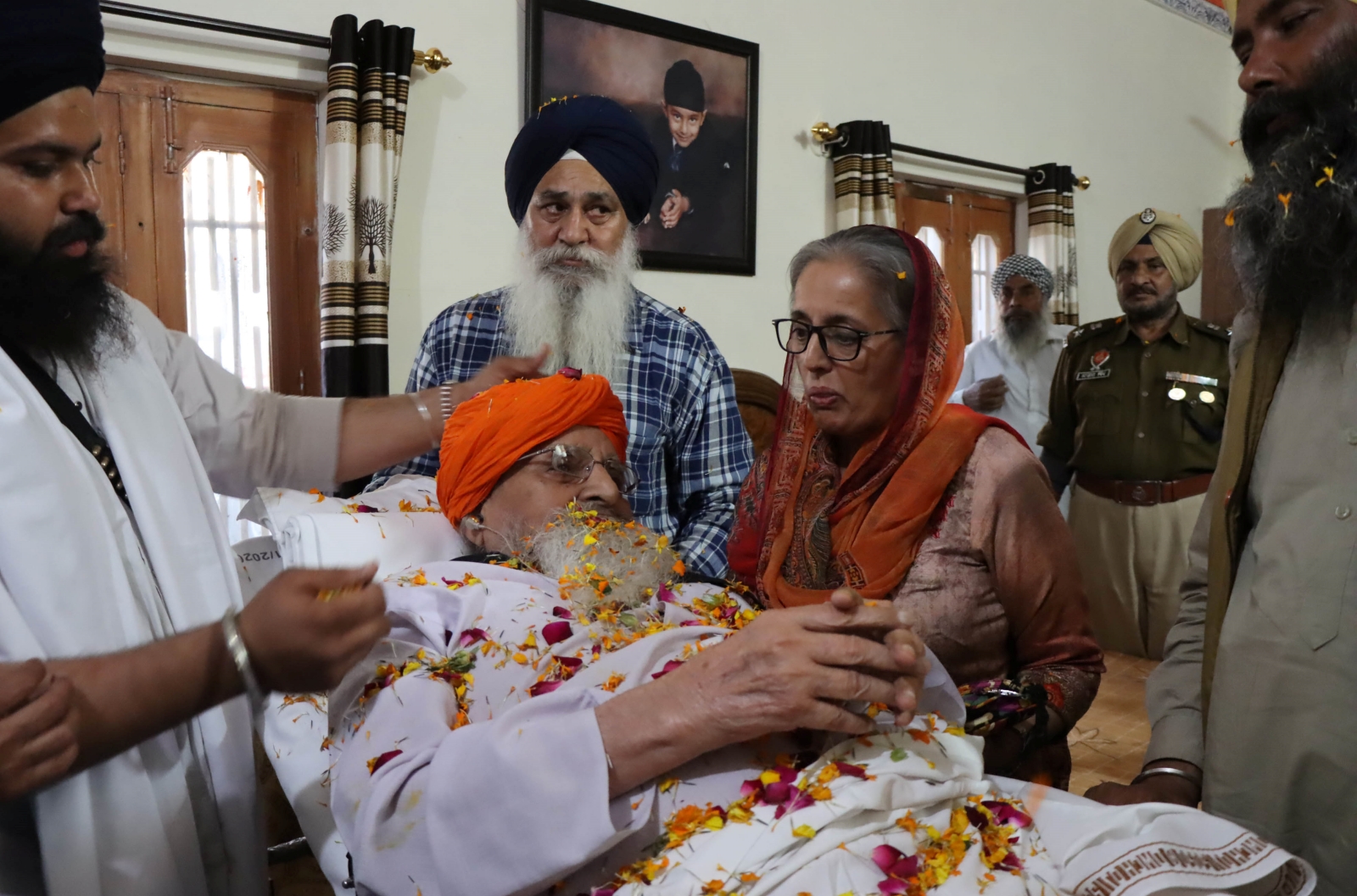 Surat Singh Khalsa after being discharged from the hospital in Ludhiana last year. (Express Photo by Gurmeet Singh)
Surat Singh Khalsa after being discharged from the hospital in Ludhiana last year. (Express Photo by Gurmeet Singh)